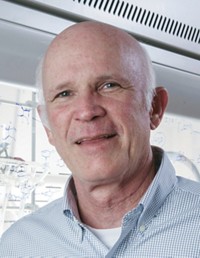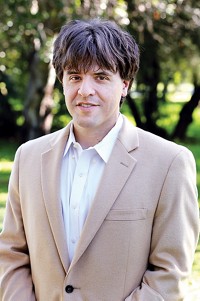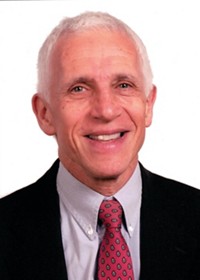Advertisement
Grab your lab coat. Let's get started
Welcome!
Welcome!
Create an account below to get 6 C&EN articles per month, receive newsletters and more - all free.
It seems this is your first time logging in online. Please enter the following information to continue.
As an ACS member you automatically get access to this site. All we need is few more details to create your reading experience.
Not you? Sign in with a different account.
Not you? Sign in with a different account.
ERROR 1
ERROR 1
ERROR 2
ERROR 2
ERROR 2
ERROR 2
ERROR 2
Password and Confirm password must match.
If you have an ACS member number, please enter it here so we can link this account to your membership. (optional)
ERROR 2
ACS values your privacy. By submitting your information, you are gaining access to C&EN and subscribing to our weekly newsletter. We use the information you provide to make your reading experience better, and we will never sell your data to third party members.
People
Kyoto Prize Goes To Anthony Pawson
Canadian scientist will receive $460,000 for pioneering work on cell signaling
by Linda Wang
July 1, 2008
Canadian molecular biologist Anthony J. Pawson is among the winners of the 2008 Kyoto Prize in Basic Science for his studies of cellular communication at the molecular level. He will receive a gold medal and a cash gift of approximately $460,000 at a ceremony in Kyoto, Japan, in November.
Given annually by Japan's Inamori Foundation, the Kyoto Prize honors people who have contributed significantly to the scientific, cultural, and spiritual betterment of mankind in the areas of advanced technology, basic sciences, and arts and philosophy.
Pawson is a principal investigator at the Samuel Lunenfeld Research Institute of Mount Sinai Hospital, in Toronto, and a professor of molecular genetics at the University of Toronto. He discovered that intracellular signal transduction is mediated by protein-protein interactions and that these interactions involve specific domains. Pawson identified the first of such domains, Src homology 2 (SH2), and opened up the field for many other domains to be discovered.
"We had thought that signaling processes within the cell were controlled purely by catalytic events," Pawson says. "What we found is that, in fact, it's the physical interactions of proteins that transmit information within the cell."
Pawson's discovery has stimulated the search for small molecules that can regulate protein-protein interactions, with potential applications in cancer and other diseases.
The award is timely because "we're getting all these signal transduction therapies now, such as Gleevec and Herceptin, which were derived from our more thorough understanding of how signal transduction works, especially in normal cells and in cancer cells," says James Woodgett, director of research at Samuel Lunenfeld Research Institute.
John Scott, a collaborator of Pawson's and a senior scientist at the Vollum Institute, in Portland, Ore., says he was very pleased to hear that Pawson had won the Kyoto Prize. "It represents recognition for the pioneering work that he's done over the past 20 years in shaping our understanding of cellular communication at the molecular level," he says.
Pawson says his current research is focused on systems biology. "We're trying to understand not only how individual pathways work but how cells are organized and respond on a more general scale," he says.
Other winners of this year's Kyoto Prize are Richard M. Karp, a professor of electrical engineering and computer sciences at the University of California, Berkeley, who received the prize for advanced technology for his work in the theory of computational complexity; and Charles Margrave Taylor, a philosopher and professor emeritus at McGill University, in Montreal, who received the prize for arts and philosophy for his development of a social philosophy addressing how diverse individuals can live together harmoniously.






Join the conversation
Contact the reporter
Submit a Letter to the Editor for publication
Engage with us on Twitter